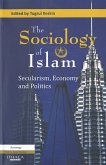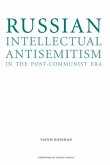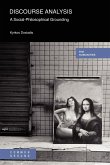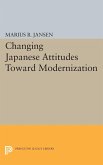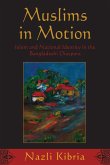In this thought-provoking study, Ali Mirsepassi explores the concept of modernity, exposing the Eurocentric prejudices and hostility to non-Western culture that have characterized its development. Focusing on the Iranian experience of modernity, he charts its political and intellectual history and develops a new interpretation of Islamic Fundamentalism through the detailed analysis of the ideas of key Islamic intellectuals. The author argues that the Iranian Revolution was not a simple clash between modernity and tradition but an attempt to accommodate modernity within a sense of authentic Islamic identity, culture and historical experience. He concludes by assessing the future of secularism and democracy in the Middle East in general, and in Iran in particular. A significant contribution to the literature on modernity, social change and Islamic Studies, this book will be essential reading for scholars and students of social theory and change, Middle Eastern Studies, Cultural Studies and many related areas.
Table of contents:
Introduction: modernity and 'culture'; 1. Western narratives of modernity; 2. Reconciling with the West's 'other'; 3. Crisis of secularism and the rise of political Islam; 4. Islam as a modernizing ideology: Al-e Ahmad and Shari'ati; 5. German intellectuals and the culture of modernity; 6. The tragedy of the Iranian left; 7. Modernities of our time; Notes; References; Index.
Ali Mirsepassi explores Eurocentric assumptions about modernity and Islamic Fundamentalism. He argues the Iranian Revolution was not a clash between modernity and tradition but an attempt to accommodate modernity within a sense of authentic Islamic identity and culture and assesses the future of secularism and democracy in the Middle East.
Examines modernity in the context of Islamic Fundamentalism and the Iranian Revolution.
Table of contents:
Introduction: modernity and 'culture'; 1. Western narratives of modernity; 2. Reconciling with the West's 'other'; 3. Crisis of secularism and the rise of political Islam; 4. Islam as a modernizing ideology: Al-e Ahmad and Shari'ati; 5. German intellectuals and the culture of modernity; 6. The tragedy of the Iranian left; 7. Modernities of our time; Notes; References; Index.
Ali Mirsepassi explores Eurocentric assumptions about modernity and Islamic Fundamentalism. He argues the Iranian Revolution was not a clash between modernity and tradition but an attempt to accommodate modernity within a sense of authentic Islamic identity and culture and assesses the future of secularism and democracy in the Middle East.
Examines modernity in the context of Islamic Fundamentalism and the Iranian Revolution.



